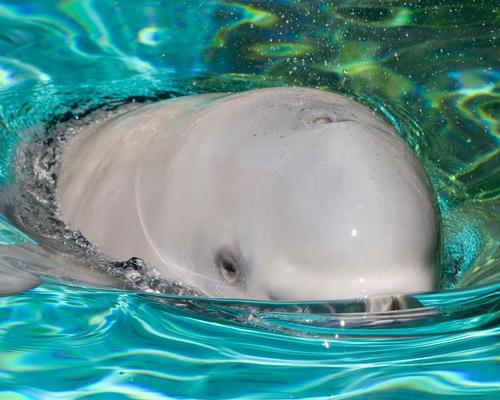21 Apr 2017
Investigation finds mystery toxin the cause of Vancouver beluga deaths
BY Tom Anstey

A five-month investigation into the deaths of two beluga whales at Vancouver Aquarium last year has determined that the cetaceans were killed thanks to an unknown toxin introduced “by food, water, or through human interference”.
The investigation by the aquarium – which involved dozens of veterinary pathologists, toxicologists, genome specialists, medical doctors, and field research scientists – concluded that the cause of death in both animals was a toxin.
“Extensive testing was unable to identify the exact substance involved, which is not uncommon due to the very limited time a toxin is traceable in the bloodstream,” said a statement from the aquarium.
“The investigation has helped us understand what happened and, importantly, how we can best ensure the safety and welfare of marine mammals in our care.”
The Vancouver Park Board voted last month to end the practice of keeping whales, dolphins and porpoises at Vancouver Aquarium, with Park Board chair Sarah Kirby-Yung – former vice-president of communications for the aquarium – saying that the events justified a vote by city residents on continued whale captivity in the region.
The decision is a heavy blow for the aquarium, which recently announced a CA$100m (US$76.1m, €72.2m, £61.3m) 12-year expansion. At its heart, the expansion features a larger enclosure for its Arctic beluga habitat, with a new water filtration system and improved security measures.
The aquarium currently has three cetaceans on display – a harbour porpoise, a Pacific white-sided dolphin and a false killer whale. All three animals are receiving long-term care as part of the Aquarium’s Marine Mammal Rescue Centre Programme. The aquarium also owns six belugas, four of which reside at SeaWorld in Orlando, with the remaining two currently calling Georgia Aquarium home.
According to the aquarium, since the deaths of its belugas Qila and Aurora, several measures have been taken to test, evaluate, and reduce risks in the Arctic habitat, including an enhanced food-screening process, removal of adjacent vegetation, an overhaul of mechanical water treatments systems and increased water monitoring. Significant security updates have also been deployed to monitor perimeter access and reduce potential threats of human interference.
“We deeply appreciate the assistance of world class experts during the investigation process, the outpouring of support from members and the local community, as well as the unwavering dedication of our staff and volunteers,” said Dr. Martin Haulena, head veterinarian at Vancouver Aquarium. “The conclusion of the investigation helps bring closure to an extremely difficult situation.”
Close Window